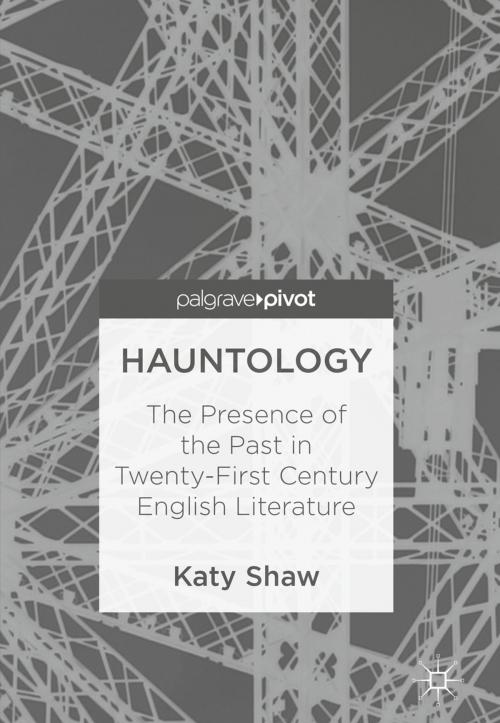Hauntology
The Presence of the Past in Twenty-First Century English Literature
Fiction & Literature, Literary Theory & Criticism, Theory, Nonfiction, Religion & Spirituality, Philosophy| Author: | Katy Shaw | ISBN: | 9783319749686 |
| Publisher: | Springer International Publishing | Publication: | April 16, 2018 |
| Imprint: | Palgrave Macmillan | Language: | English |
| Author: | Katy Shaw |
| ISBN: | 9783319749686 |
| Publisher: | Springer International Publishing |
| Publication: | April 16, 2018 |
| Imprint: | Palgrave Macmillan |
| Language: | English |
Post-millennial writings function as a useful prism through which we can understand contemporary English culture and its compulsion to revisit the immediate past. The critical practice of hauntology turns to the past in order to make sense of the present, to understand how we got to this place and how to build a better future. Since the Year 2000, popular culture has been inundated with representations of those who occupy a space between being and non-being and defy ontological criteria.
This Pivot explores a range of contemporary English literatures - from the poetry of Simon Armitage and the drama of Jez Butterworth, to the fiction of Zadie Smith and the stories of David Peace - that collectively unite to represent a twenty-first century world full of specters, reminiscence and representations of spectral encounters. These specters become visible and significant as they interact with a range of social, political and economic discourses that continue to speak to the contemporary period.
The enduring fascination with the spectral offers valuable insights into a contemporary English culture in which spectral manifestations signal towards larger social anxieties as well as to specific historical events and recurrent cultural preoccupations. The specter confronts the contemporary with the necessity of participation, encouraging the realisation that we must engage with it in order to create meaning. Narrative agency is the primary motivating force of its return, and the repetition of the specter functions to highlight new meanings and perspectives.
Harnessing hauntology as a lens through which to consider the specters haunting twenty-first century English writings, this Pivot examines the emergence of a vein of hauntological literature that profiles the pervasive presence of the past in our new millennium.
Post-millennial writings function as a useful prism through which we can understand contemporary English culture and its compulsion to revisit the immediate past. The critical practice of hauntology turns to the past in order to make sense of the present, to understand how we got to this place and how to build a better future. Since the Year 2000, popular culture has been inundated with representations of those who occupy a space between being and non-being and defy ontological criteria.
This Pivot explores a range of contemporary English literatures - from the poetry of Simon Armitage and the drama of Jez Butterworth, to the fiction of Zadie Smith and the stories of David Peace - that collectively unite to represent a twenty-first century world full of specters, reminiscence and representations of spectral encounters. These specters become visible and significant as they interact with a range of social, political and economic discourses that continue to speak to the contemporary period.
The enduring fascination with the spectral offers valuable insights into a contemporary English culture in which spectral manifestations signal towards larger social anxieties as well as to specific historical events and recurrent cultural preoccupations. The specter confronts the contemporary with the necessity of participation, encouraging the realisation that we must engage with it in order to create meaning. Narrative agency is the primary motivating force of its return, and the repetition of the specter functions to highlight new meanings and perspectives.
Harnessing hauntology as a lens through which to consider the specters haunting twenty-first century English writings, this Pivot examines the emergence of a vein of hauntological literature that profiles the pervasive presence of the past in our new millennium.















